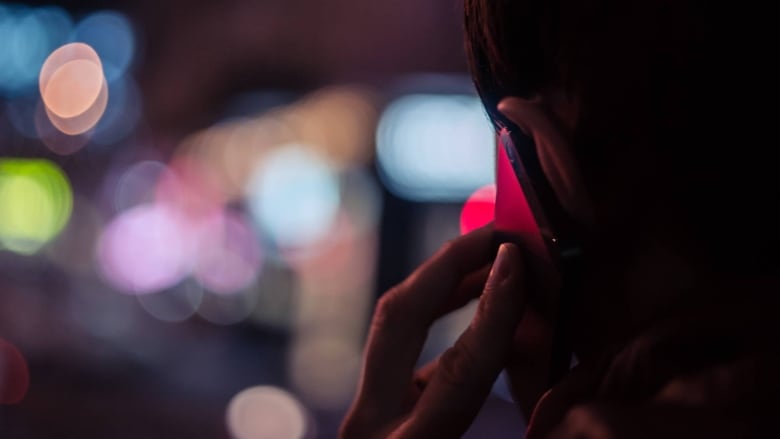Quebec's LGBTQ community rallies behind 24/7 helpline to save its nighttime services
Interligne says it will need fixed funding from provincial government to continue full operations

Quebec's LGBTQ community rallied behind Interligne, a specialized 24/7 helpline, to help save its nighttime services.
After decades of operation, the night line was meant to shut down March 31 due to a lack of funding. But a major fundraising effort allowed Interligne to secure $98,000 enough to keep the services going for another six months.
"It's encouraging and great and gives us some runway time as we continue to push for that recurring funding," said Interligne board member Brock Hazen.
"I think we were given that extra push we need to keep fighting, but we can't expect the community to show up like this yearly. I think it's very clear that the recurring funding needs to be baked into Interligne's funding from the government."
Interligne has been operating with the help of donations and project-based funding from the city and provinceand is trying to secure $300,000 in fixed, annual mission-based funding. With the crowdfunded money, the night line won't have to be nixed but there will be one less operator on the phone line.
About one-third of all calls Interligne receives come in at nighttime and they are often the most distressing, said Hazen.
"There's a higher level of vulnerability in the calls during these hours, a higher level of potential danger, so people may be thinking of hurting themselves," he said.
"To have that safety net, to have that warm welcoming voice on the other end of the line really does save lives. It shows people that they are not alone, that Interligne is there for them and they deserve help, they deserve to be here."
Hazen says Interligne has been meeting with the provincial government over the last two weeks and that the conversations seem promising.
A spokesperson for theminister responsible for the status of women, Martine Biron,confirmed she has beenmeeting with Interligne and is "very actively looking for solutions concerning their night line."
But Hazen says he feels it can be difficult to get ministers to understand the need for an LGBTQ-specialized hotline compared to other suicide action lines.
"When you're in a vulnerable position, you're dealing with mental health, you're thinking of suicide, you need that guarantee that the person on the other end of the line is going to accept you for who you are, you won't have to explain yourself," he said.
The helpline also gets called from elsewhere in Canada and from other countries that might not be in the same time zone.
The opposition critic for the 2SLGBTQIA+ Community, Liberal MNA Jennifer Maccarone, attended Interligne's fundraiser gala on Friday night. She has long been vocal about the need to fund LGBTQ organizations like Interligne at the National Assembly.
"Imagine you're in a transition and someone answers the phone and misgenders you when you're already suffering from an extreme amount of emotional distress and you don't feel supported, that could be the element that overflows your glass," said Maccarone.
"We need to have dedicated resources. There is no other suicide action line that compares to Interligne. It's the only one in Canada."
She says the government must commit to funding Interligne's night line because it has a responsibility to care for all Quebecers. She also points out that there has been a rise in homophobic and transphobic discourse recently, especially online.
"Clearly there's a strong need, demand, and a lot of support so at the end of the day it's not singularly the responsibility of the community to come behind and save Interligne. The government has a responsibility to provide support for this very essential service," she said.












_(720p).jpg)


 OFFICIAL HD MUSIC VIDEO.jpg)
.jpg)



























































































